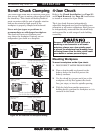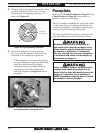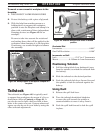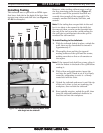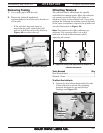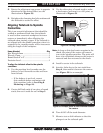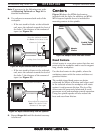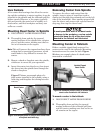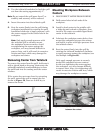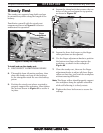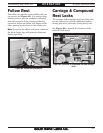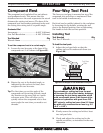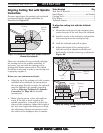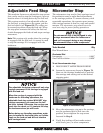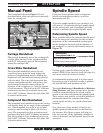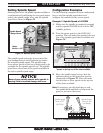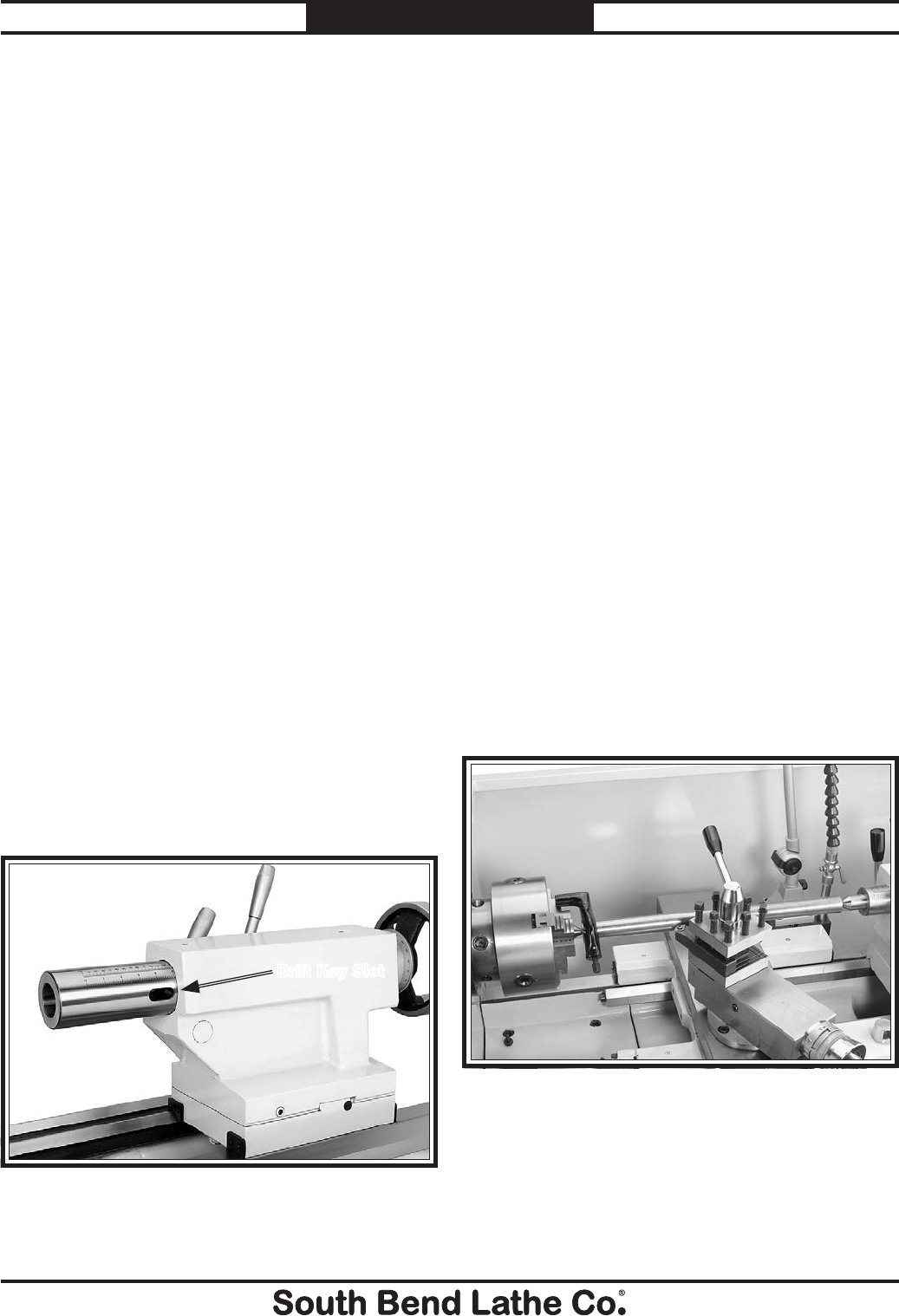
For Machines Mfg. Since 3/11 16-Speed Gearhead Lathe
-45-
OPERATION
3. Use the tailstock handwheel to feed the quill
out from the casting approximately 1".
Note: Do not extend the quill more than 2" or
stability and accuracy will be reduced.
4. Insert the center into the tailstock quill.
5. Seat the center firmly into the quill during
workpiece installation by rotating the quill
handwheel clockwise to apply pressure, with
the center engaged in the center hole in the
workpiece.
Note: Only apply enough pressure with
the tailstock quill to securely mount
the workpiece between centers. Avoid
overtightening the center against the
workpiece, or it may become difficult to
remove later, and it will result in excessive
friction and heat, which may damage the
workpiece and center.
Removing Center from Tailstock
To remove the center from the quill, hold onto it
with a gloved hand or shop rag, then rotate the
tailstock handwheel counterclockwise to draw
the quill back into the casting until the center
releases.
If the center does not come loose by retracting
the quill, extend the quill to expose the slot
shown in Figure 59, then use a drift key to
remove the center.
Figure 59. Drift key slot in the side of the quill.
Drift Key Slot
Mounting Workpiece Between
Centers
1. DISCONNECT LATHE FROM POWER!
2. Drill center holes in both ends of the
workpiece.
3. Install a dead center in the spindle with
a lathe dog and a chuck or faceplate, then
install a live center or carbide-tipped dead
center in the tailstock.
4. Lubricate the workpiece center holes, then
mount the workpiece between the centers
and hold it in place with light pressure from
the tailstock center.
5. Seat the center firmly into the quill by
rotating the tailstock handwheel clockwise
to apply pressure against the workpiece (see
the example in Figure 60).
Only apply enough pressure to securely
mount the workpiece between centers.
Avoid over-tightening the center against
the workpiece, or it may become difficult
to remove later. Also, over-tightening will
result in excessive friction and heat, which
may damage the workpiece or center.
Figure 60. Example photo of a workpiece mounted
between the centers.



